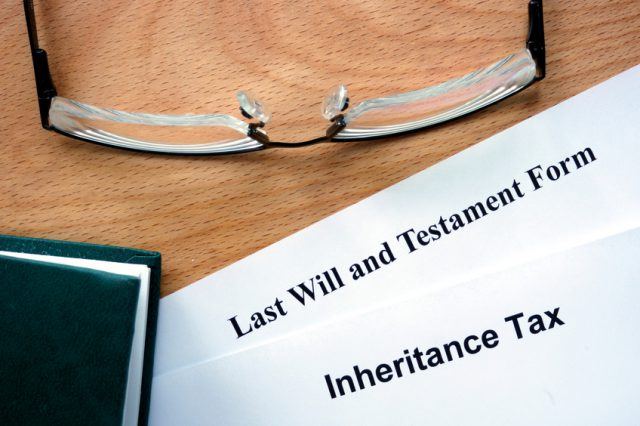The Government has recently provided guidance on its new Inheritance Tax (IHT) rules on UK residential property.
The CEO of London Central Portfolio (LCP), Naomi Heaton, explains the changes:
“The Government has recently published their proposals, currently under consultation, for sweeping legislative reforms for non-UK domiciled individuals (non-doms). Alongside other far-reaching changes, new rules are being proposed, specifically relating to residential property, which seek to redress the perceived imbalance between IHT charges on UK domiciles and non-doms holding such property in offshore (non-UK) structures. Initially announced during the 2015 summer Budget, speculation that these proposed changes would be dismissed following the UK’s vote to leave the European Union have not come to bear.
“Given LCP’s focus on lower value units, sub £1m, targeting the mainstream private rented sector, many of our private clients will remain broadly unaffected by the new measures. With steps already having been taken to maximise tax efficiency through prudent use of leverage, the use of offshore structures, which come with high establishment and running costs, has increasingly been avoided. This means the new IHT rules may have no impact on future tax planning.
“There is good news too for those investing through the property funds advised by LCP and for those looking for an alternative and tax efficient solution to holding UK residential property directly. As with other recent legislative changes, such as the introduction of non-resident Capital Gains Tax (CGT), where an exclusion has been made for diversely held vehicles, there will be a similar exclusion from the new IHT rules. These exclusions reflect the Government’s move to encourage the institutionalisation of the private rented sector.”
So what is Inheritance Tax?
IHT is a tax on the estate (including the property, money and possessions) of someone who has died. The new IHT rules for non-doms only apply to residential property owned in closely held offshore structures.
IHT rates
IHT is charged on an estate at 40%, subject to certain exemptions. The estate can pay IHT at a reduce rate of 36%, if the person leaves 10% or more of the net value to charity.

A Guide to New Inheritance Tax Rules on Residential Property
IHT for non-doms is charged solely on their UK-situated assets. Non-doms who have been resident in the UK for 17 out of the last 20 years can become deemed domiciled for IHT purposes. From April 2017, non-doms will become deemed domiciled in the UK for all tax purposes after 15 years of residence.
There is also a minimum threshold before IHT becomes payable. This means that a proportion of your estate may fall within the nil rate band, which currently stands at £325,000 per person or £650,000 for a married couple. This exemption applies to every shareholder in an offshore structure. Under current rules, any unused nil rate band can be transferred to a surviving spouse or civil partner.
An additional nil rate band (on top of the existing bands listed above) will be available from the 2017/18 tax year for property used as a main residence. This will stand at £100,000 (£200,000 per couple) initially and rise to £175,000 (£350,000 per couple) in 2020/21, subject to certain restrictions.
For properties held by offshore trusts or in offshore trust/company structures, a charge of up to 6% of the market value of the UK residential property can be levied on the ten-year anniversary of the trust.
The new rules
Under the Treasury’s proposed rules, from April 2017, the scope of existing IHT legislation will be expanded to look through offshore structures and catch underlying UK residential property assets, which were previously outside the scope of IHT. The measure will apply to UK residential property of any value and regardless of whether a property is rented or owner-occupied.
The new tax will apply to any chargeable event taking place after 5th April 2017, with no grandfathering for existing structures. In line with current rules, gifts made more than three years before the death of a donor are expected to attract taper relief.
The current definition of a chargeable event includes:
- The death of an individual who held shares in an overseas close company that holds UK residential property.
- The death of a donor making a gift of shares in a close company that holds UK residential property, where that gift was made within seven years of death.
- Any ten-year anniversary of a trust holding UK residential property through an offshore company.
In the same way as non-resident CGT, the IHT charge for mixed-use property, such as a building that is used for residential and commercial purposes, will be proportioned to the extent of the property’s residential use.
Exemptions from the new rules
Other types of property: The Government has made it clear in its proposals that only UK residential property will be included in the extended scope for non-doms holding assets in offshore vehicles. All other assets, including commercial property, will not be affected.
Property funds and diversely held corporate vehicles: While tax legislation is subject to change, as with other recent extensions to taxation on UK residential property, an exemption has been made for property funds and other vehicles with genuine diversity of ownership, such as the property funds advised by LCP.
Outstanding leverage on property: In line with current IHT rules, the new charge will apply only to the net value of the residential property, taking any relevant outstanding debts into account. These are debts that relate exclusively to the property, such as the amount outstanding on a mortgage. The debts are subject to current rules requiring the debt to have been in place at the point of purchase and also disregard any debts from connected parties.
De-enveloping considerations
Investors considering de-enveloping following the new announcements should seek tax advice regarding other potential implications, as the UK Government has decided not to offer incentives to those looking at unwinding their structures.
Liability and accountability
The UK Government is planning to extend reporting responsibility in the following ways:
- Extending HMRC’s powers to impose IHT on indirectly held UK residential property, such that the property cannot be sold until any outstanding IHT is paid.
- A new liability on any persons who have legal ownership of property (including directors of a company that holds UK residential property) to ensure that IHT is paid.
Final details of the new IHT rules will be published in October and included in the 2017 Finance Act. LCP reminds everyone that changes may be made to the existing proposals before implementation.







